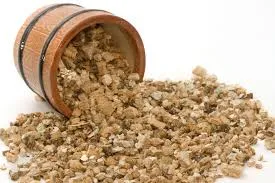Oct . 22, 2024 12:24 Back to list
Zeolite as a Key Export Commodity for Adsorbent Applications Worldwide
Zeolites as Adsorbents A Comprehensive Analysis of Exporters and Their Contributions to Global Markets
Zeolites, naturally occurring and synthetic crystalline aluminosilicates, have become pivotal in various industries due to their unique properties. Their porous structures, high surface area, and ion-exchange capabilities make them exceptional adsorbents for a wide range of applications, including water purification, air filtration, and catalysis. The global demand for zeolites has surged in recent years, prompting many countries to position themselves as significant exporters of these versatile materials.
The Role of Zeolites in Adsorption
Zeolites are used primarily for their ability to adsorb substances. Their porous nature enables them to trap gas molecules or liquid contaminants, making them incredibly effective in purification processes. For instance, zeolites can selectively adsorb contaminants from water, such as heavy metals and organic pollutants, thus providing a crucial solution for clean water initiatives worldwide. In air purification, zeolites can remove volatile organic compounds (VOCs) and odors, enhancing air quality in residential and industrial settings.
Additionally, in the realm of catalysis, zeolites act as catalysts in chemical reactions, facilitating the conversion of raw materials into valuable products. This functionality is particularly vital in the petrochemical industry, where zeolites are employed to improve the efficiency of hydrocarbon conversion processes.
Leading Exporter Countries
Several countries stand at the forefront of zeolite production and exportation, leveraging their natural resources and technological advancements. The United States, for example, is one of the largest producers and exporters of zeolites, primarily due to its rich deposits and advanced extraction technologies. American companies have established a strong foothold in the global market, exporting zeolites to various countries for use in agriculture, water treatment, and industrial applications.
China is another major player in the zeolite export market
. With extensive mining operations and a robust manufacturing sector, China supplies zeolites to numerous international markets. Chinese exporters often focus on synthetic zeolites, which are tailored for specific industrial applications, thus broadening their market reach.Other notable countries include Greece and Turkey, which are known for their natural zeolite deposits. These countries have developed their zeolite sectors, promoting exports primarily to Europe and neighboring regions. Greece, for example, has gained recognition for its high-quality natural zeolites, which are frequently used in agriculture as soil amendments and fertilizers.
zeolite as adsorbent exporters

Market Dynamics and Future Prospects
The zeolite market is poised for growth as industries increasingly recognize the environmental benefits of using zeolites as adsorbents. Rising concerns over pollution and the need for sustainable practices are driving the demand for effective filtration and purification solutions. Additionally, regulatory pressures aimed at reducing industrial emissions are encouraging manufacturers to adopt zeolite-based technologies.
The agricultural sector is also a significant contributor to the zeolite market, as these minerals are incorporated into fertilizers to enhance soil quality and nutrient retention. As global agricultural practices evolve towards sustainability, the demand for zeolite-based products is expected to rise.
Challenges Facing Exporters
Despite the promising outlook, zeolite exporters face several challenges. The market is highly competitive, with numerous players vying for attention in an ever-growing landscape. Furthermore, fluctuations in raw material prices can impact production costs, subsequently affecting profit margins. Exporters must also navigate international trade regulations and tariffs, which can complicate cross-border transactions.
Additionally, the synthesis of zeolites requires significant energy and chemical inputs, raising concerns over the overall environmental impact of their production. As such, exporters are increasingly investing in more sustainable practices and innovations to enhance the eco-friendliness of their products.
Conclusion
Zeolites as adsorbents represent a vibrant and essential market segment with diverse applications across various industries. Countries like the United States, China, Greece, and Turkey are key players in the zeolite export landscape, contributing to the global supply of these indispensable materials. As industries continue to prioritize sustainability and environmental stewardship, the usage of zeolites is set to soar, paving the way for innovative solutions to contemporary challenges. With strategic investments and a focus on sustainability, the future looks bright for zeolite exporters and their contributions to a cleaner, greener planet.
-
Fe-C Composite Pellets for BOF: Enhance Steelmaking Efficiency
NewsAug.07,2025
-
Eco-Friendly Granule Covering Agent | Dust & Caking Control
NewsAug.06,2025
-
Fe-C Composite Pellets for BOF: High-Efficiency & Cost-Saving
NewsAug.05,2025
-
Premium Tundish Covering Agents Exporters | High Purity
NewsAug.04,2025
-
Fe-C Composite Pellets for BOF | Efficient & Economical
NewsAug.03,2025
-
Top Tundish Covering Agent Exporters | Premium Quality Solutions
NewsAug.02,2025
